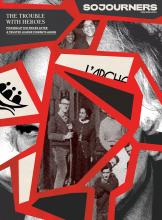DNA RESEARCH HAS been a sacred journey of mine for the last 10 years. What started as an exercise in building my family tree evolved into a global adventure unearthing my West African roots. Little did I know that more than 50 percent of my ethnic heritage traces back to West Africa through Nigeria, Benin, and Cameroon (connected to the Bamileke people).
The African roots of the Puerto Rican story often remain obscure. Like many Puerto Ricans, I was taught a one-dimensional story of my heritage. Puerto Ricans often, with beaming pride, share their connection to the cultural heritage of Spain or their Indigenous roots, namely the Taino Indigenous peoples. But, for many, the African strands of identity are held at a distance, even suppressed like a muted djembe beat.
Read the Full Article

